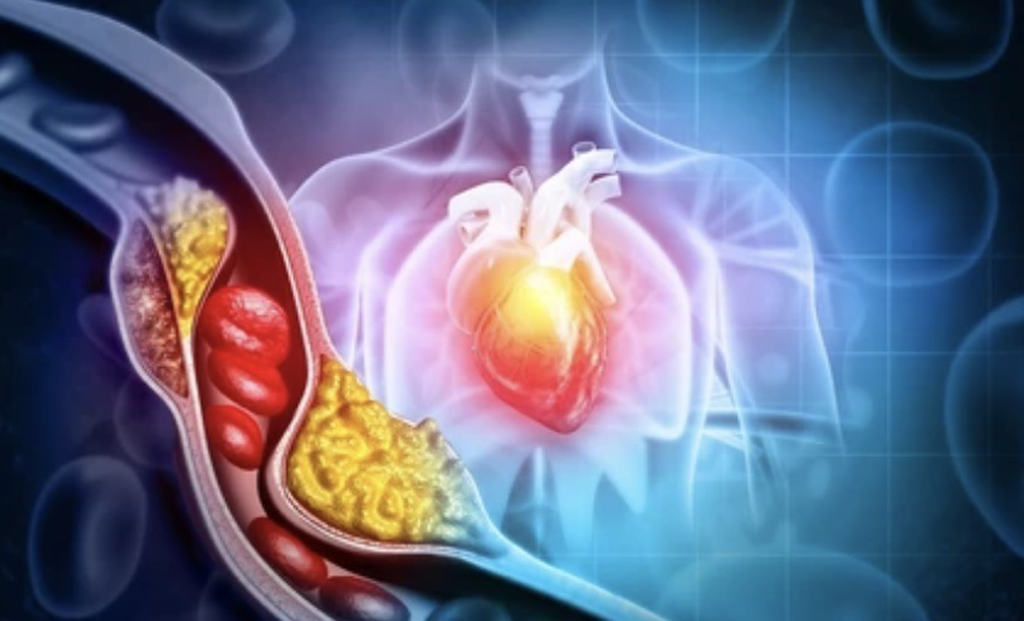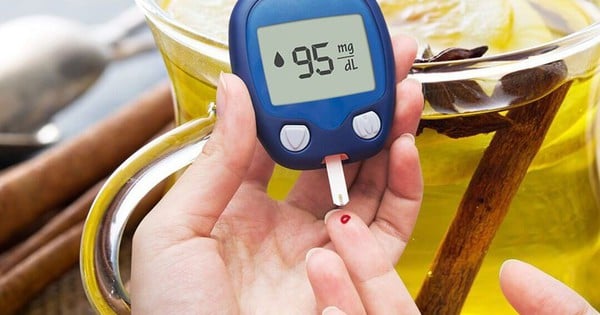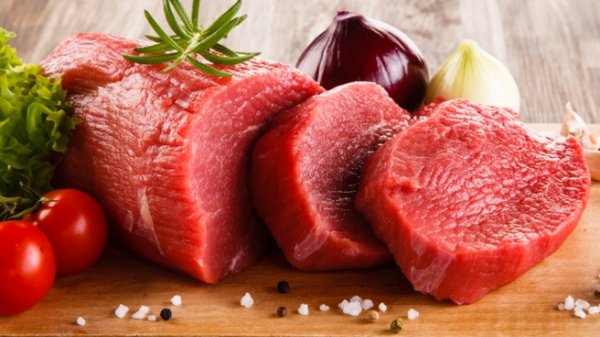Starting the day with health news, readers can also read more articles: Eating fruit with salt, which one do you like the most?; Doctor reveals the healthiest evening habits; Donating 1,600 liters of her milk, mother of 3 sets Guinness record...
This diet helps reduce cholesterol and diabetes
New research recently published in the journal JAMA Network Open , shows that a vegetarian diet can lower cholesterol, promote weight loss and improve blood sugar control.
It turns out that going vegetarian can help your heart and reduce your risk of diabetes.

Vegetarians who followed a vegetarian diet for an average of six months had significantly reduced cholesterol levels.
This is good news for many people, as more and more people have switched to a vegetarian diet in recent years. Although this way of eating has been shown to benefit the heart and blood vessels, there is little research on people who already have or are at high risk of heart disease.
The results demonstrated that a vegetarian diet had significant effects on reducing LDL "bad" cholesterol levels, reducing average HbA1c blood sugar levels and losing weight, especially in high-risk patients, the authors said.
Nutrition researcher and PhD candidate Tian Wang from the University of Sydney, Australia, analyzed 20 trials from the US, Asia, Europe and New Zealand, including 1,878 people with or at high risk of cardiovascular disease, aged 28 to 64. The results of this study will be published on the health page on August 5 .
Eating fruit with salt, which type do you like best?
Fruits are an essential part of a healthy diet. Not only are they delicious, rich in fiber, vitamins, minerals, and antioxidants, but some fruits are even more delicious and nutritious when eaten with salt.
To ensure good health, people should only eat about 2,300 mg of salt per day. This amount of salt is equivalent to 1 teaspoon of salt. In fact, only 1/3 of this amount of salt is enough for each fruit meal.

Soaking pineapple in salt water will help reduce the burning sensation in your mouth when eating.
Here are some fruits that are more nutritious and delicious when eaten with salt:
Pineapple. Pineapple will be more delicious and sweet if eaten with salt. But when eating pineapple, one thing that people easily notice is the burning sensation in the tongue caused by the pineapple. That is due to the effect of the enzyme bromelain on the tongue.
This enzyme is very beneficial for digestion. However, its downside is that it can cause irritation in the mouth. To reduce this condition, the solution is very simple: soak the pineapple in salt water. Salt water will neutralize the bromelain, thereby reducing the burning sensation in the mouth when eating pineapple. However, you should not soak it in salt water for too long because it can lose the natural sweetness of the pineapple and make it soft.
Grapefruit. Grapefruit is a very healthy fruit because it is rich in fiber, vitamins A and C. However, grapefruit has a limitation that it is sometimes bitter and difficult to eat. This bitter taste is due to the effect of the compound naringin in grapefruit. In addition to grapefruit, other fruits in the same family such as oranges and tangerines also have a similar problem.
Eating grapefruit with salt will help reduce the effects of naringin. A study published in the journal Nutrients shows that eating grapefruit with salt will help reduce bitterness and increase sweetness. Readers can read more about this article on the health page on August 5.
Donating 1,600 liters of her milk, mother of 3 children sets Guinness record
Over the course of nine years, Elisabeth Anderson-Sierra in the United States donated 1,600 liters of her milk to 422 other women. This achievement of hers set a world record and was recognized by the Guinness World Records. The reason she donated such a large amount of milk is because she has a condition that causes her to produce more milk.
Elisabeth Anderson-Sierra, 35, a mother of three and a resident of Portland, Oregon (USA), was diagnosed with galactorrhea in 2014 when she was pregnant and gave birth to her first daughter, Isabella.

Elisabeth Anderson-Sierra in the US donated more than 1,600 liters of her milk to mothers who lack milk to feed their children.
The abnormalities began to appear at 14 weeks of pregnancy, when her breasts began to produce milk. Doctors performed a series of tests, including a CT scan of the pituitary gland. The pituitary gland is a small, pea-sized gland located below the brain, responsible for secreting hormones that control the body's endocrine system.
Hormonal changes during pregnancy cause the pituitary gland to become slightly enlarged, overactive, and secrete more prolactin, the hormone responsible for stimulating milk production in the mammary glands.
"My endocrinologist told me I could take bromocriptine to lower my prolactin levels. But if I did that, I might stop producing milk and not have enough to feed my daughter Isabella," Anderson-Sierra said. Start your day with health news to see more of this article!
Source link


![[Photo] Prime Minister Pham Minh Chinh receives Mr. Jefferey Perlman, CEO of Warburg Pincus Group (USA)](https://vstatic.vietnam.vn/vietnam/resource/IMAGE/2025/4/18/c37781eeb50342f09d8fe6841db2426c)




![[UPDATE] April 30th parade rehearsal on Le Duan street in front of Independence Palace](https://vstatic.vietnam.vn/vietnam/resource/IMAGE/2025/4/18/8f2604c6bc5648d4b918bd6867d08396)






























































































Comment (0)